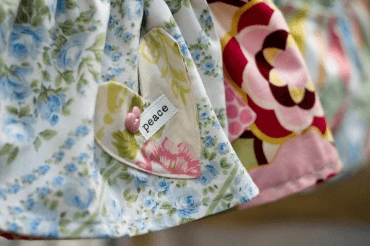
Joshua 9: The Gibeonites deceive Israel.
After Israel conquered Jericho and then Ai, the news about the strength of the Children of Israel - and their mighty God, Jehovah - spread quickly among the people of Canaan. In this chapter, the people of Gibeon came up with a plan to trick Joshua and the Israelites into granting them safety.
To preserve themselves, the Gibeonites cooked up a story that they had come from far away. They dressed in old clothing and worn-out sandals, and brought shabby wine-skins and moldy bread as proof of their long journey. After questioning these travelers, Joshua agreed to guarantee their safety, and the Israelites made a covenant to let them live. Note that the Israelites did not consult the Lord.
In the end, the Gibeonites admitted that they lived close by and were neighbors of Israel, just as the Hivites (the Gibeonites' ancestors) had been with Abraham. Joshua, unable to revoke his promise to them, made them wood-cutters and water-carriers for the altars of the Lord.
This chapter offers us several spiritual lessons. The main one is that there is a place for simple, well-intentioned goodness in our spiritual life, along with our love of God and our love for other people (See Swedenborg's exegetical work, Arcana Caelestia 3436, for details). This is what the Gibeonites stand for; they were not warlike but peaceful, content to live usefully day after day. This is an illustration of natural good, which is an important part of life in this world and in heaven (Arcana Caelestia 3167).
On a spiritual level, their story about living in a country far-away means that when we live good, well-intentioned lives, we are ‘far away’ from the evils of the Canaanites. Although the Gibeonites lived among the Canaanites, their higher values were entirely different. So while the Gibeonites deceived Israel to save themselves, they spoke truthfully when they said: “we come from a place a very long way away” (See Swedenborg's work, Heaven and Hell 481).
Their tattered and torn appearance is meant to illustrate the hard work of doing good. It can be quite wearing to continue doing good things, especially when we feel it is all up to us. Acknowledging that all good is from the Lord renews us, and keeps us from the burden of merit.
In the same vein, their worn-out appearance is also about our relationship with the Word. Little children love and delight in the stories of the Word, but as they grow up, this love dwindles (Arcana Caelestia 3690). But as adults, we have the choice to find those guiding principles from the Word, helping us to keep leading good lives.
The fact that Joshua commanded the Gibeonites to cut wood and draw water also holds spiritual significance. The beauty of wood is that it comes from living trees, and can be turned into many, many useful things. It stands for the steady, humble wish to do good each day (See Swedenborg's work, True Christian Religion 374). This must be present in our worship at the altars of the Lord.
Drawing water provides essential, life-giving refreshment for others. Water stands for truth, and our better actions draw the water of life for the sake of others. Truly, acknowledging the goodness in other people is part of our faith in God. This story shows us that we must allow others to live and to serve everything of God, just as Joshua showed mercy toward the Gibeonites.








